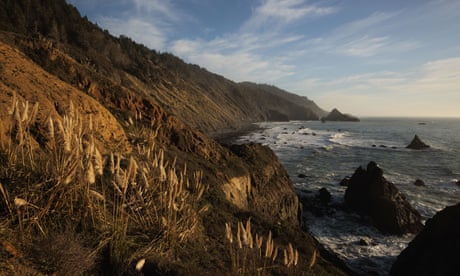- by foxnews
- 07 Mar 2025
Native American tribes reclaim California redwood land for preservation
Native American tribes reclaim California redwood land for preservation
- by theguardian
- 26 Jan 2022
- in news

The descendants of Native American tribes on the northern California coast are reclaiming part of their ancestral homeland, including ancient redwoods that have stood since their forebears walked the land.
Save the Redwoods League, a non-profit conservation group, announced Tuesday that it is transferring more than 500 acres (202 hectares) on the Lost Coast to the InterTribal Sinkyone Wilderness Council.
Priscilla Hunter, the chair of the Sinkyone Council, said it is fitting they will be caretakers of the land where her people were removed or forced to flee before the forest was largely stripped for timber.
The transfer marks a step in the growing Land Back movement to return Indigenous homelands to the descendants of those who lived there for millennia before European settlers arrived. In 2020, the Esselen tribe of northern California regained more than 1,000 acres of its ancestral homeland with a $4.5m deal involving the state and an Oregon conservation group. Such arrangements have become more common in recent years, allowing for the conservation of land and wildlife.
The league first worked with the Sinkyone council when it transferred a 164-acre (66-hectare) plot nearby to the group in 2012.
The league recently paid $37m for a scenic five-mile (eight-km) stretch of the rugged and forbidding Lost Coast from a lumber company to protect it from logging and eventually open it up to the public.
Opening access to the public is not a priority on the property being transferred to the tribal group because it is so remote, said Sam Hodder, the president and CEO of the league. But it serves an important puzzle piece wedged between other protected areas.
Steep hills rise and fall to a tributary of the Eel River that has steelhead trout and Coho salmon. The property was last logged about 30 years ago and still has a large number of old-growth redwoods as well as second-growth trees.
The league purchased the land two years ago for $3.5m funded by Pacific Gas & Electric Co to provide habitat for endangered northern spotted owl and marbled murrelet to mitigate other environmental damage by the utility.
In an effort to reduce its liability and the chance of vegetation contacting power lines and sparking fires, PG&E has been criticized for destroying many large and old trees.
Hawk Rosales, the former executive director of the council, said the new property adds a significant holding to the 4,000 acres (1,618.7 hectares) the group protects for cultural and ecological purposes.
- by foxnews
- descember 09, 2016
Virgin Mary sculpture standing nearly 200 feet set to be tallest religious statue in the world
A Virgin Mary statue is being built in Poland and it may be the world's tallest religious statue once construction is completed. The build will stand nearly 200 feet.
read more


